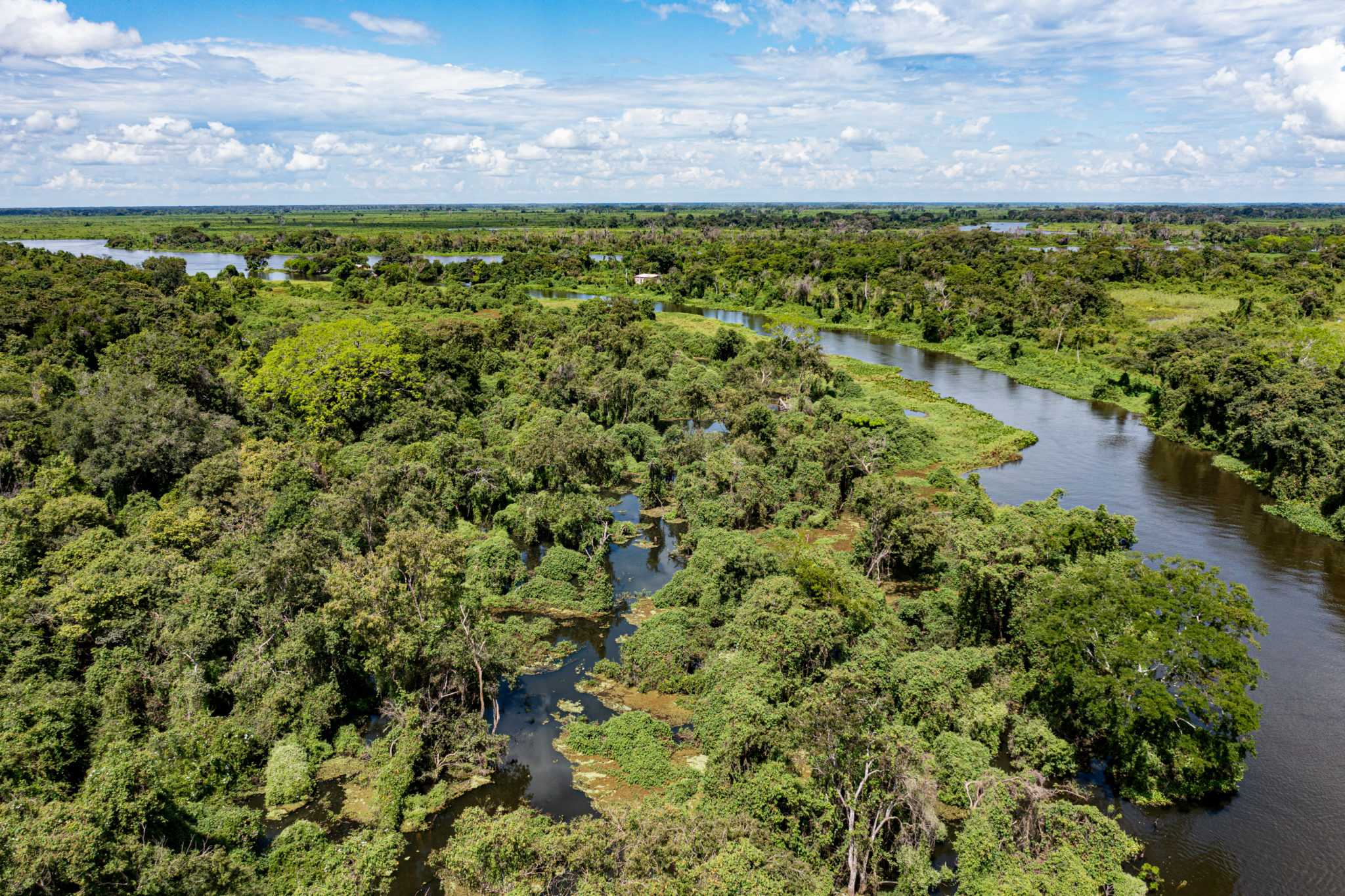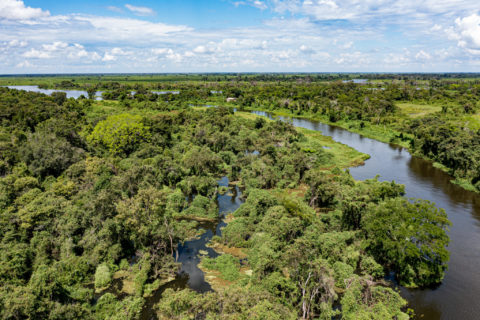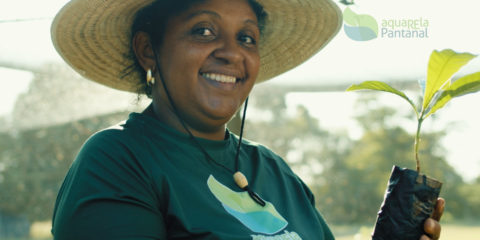
The AquaREla Pantanal, scientific and traditional knowledge for the biome restoration
-
Ríos y lagos
Partner institutions celebrate the advances in the initiative for the recovery of an area devastated by the 2020 fires, on The Pantanal Day
Versión en español | versão português

The wisdom of the traditional communities of the Pantanal combined with scientific knowledge has brought more life to the biome, after it suffered the damage of something close to 22,000 fires, devastating more than 30% of its surface. A number around 4.4 million hectares reduced to ashes, in 2020. The AquaREla Pantanal Initiative gathers institutions and the Pantanal communities for the biome restoration, especially the areas affected by fire within the RPPN (Private Natural Heritage Reserve) Sesc Pantanal.
Amongst the partner institutions are the Mupan (Women in Action in the Pantanal), Wetlands International Brasil through the Corredor Azul Program, the CPP (Pantanal Research Center), the INAU (National Institute of Science and Technology of Wetlands) from the UFMT (Federal University of Mato Grosso) and the Sesc Pantanal Socio-Environmental Pole.
As the scientific coordinator of the initiative, Cátia Nunes da Cunha explains, it is a visionary action for the biome’s wetlands recovery . “Restoration comes to revitalize environments that were, in some way, degraded. For example, we are trying to bring back the biodiversity that was lacking in a certain place, protecting it from erosion. In other words, we are enhancing this environment for the next generations”.
The conservation and recovery of the degraded areas of the biome involves the production of native seedlings from the Pantanal. The Pantanal communities of Capão do Angico, in Poconé (MT), and Barão do Melgaço (MT) are participating in the initiative. It generates income and empowers the communities, The AquaREla Pantanal has produced the biome native seedlings for the recovery of areas affected by the fire.
The entire production of seedlings has taken place within the very communities. They received technical support and training. The women involved in the initiative also receive a grant for the work developed in the nurseries.
“The entire work contemplates the three pillars of sustainability: social, environmental and economic one. Currently, 12 families participate in all stages of seedling production and five others participate in the plantations. However, the gains are scalable when considering the environmental impact, and the living conditions in the place, reestablished for the fauna and flora, not to mention the collective impacts”, as the director of Wetlands International Brazil, Rafaela Nicola, clarifies.
Natalice da Costa works in the nursery from the community of Capão do Angico, she says that the entire community benefits from these actions. “It is a breath of hope, not only for the animals and plants, as they have suffered so much from the fires. Therefore, it comes to rescue us too, as it brings us a new strength,” she affirms.
“The project has even taken me to the Xingu territory where I could learn about the work they do with the seed banks, and we intend to sell seedlings, in the future, to rural landowners in the region”, Miriam Amorim says, she works in the nursery, and also heads the community brigade of São Pedro de Joselândia, in Barão de Melgaço, in addition to participating in the project.
Both nurseries have already produced 40,000 seedlings native to wetlands, of 54 different species, including ipês (yellow, purple and white), jatobá, cumbarú, paratudo, tarumã, pequi, timbó, fig tree, genipapo, manduvi , siputá, ingá, bacupari, acuri, aroeira and imbaúba.
Part of this production was used in the restoration and regeneration of 46 hectares of the RPPN Sesc Pantanal affected by the fire and the rest will be sold by the community associations or, in some cases, donated to projects for the recovery of other areas.
The Documentary
Natalice, Miriam and their communities’ story of hope, resilience and love for the Pantanal is shown in a video that is being released this Saturday, November 12, the date on which the Pantanal Day is celebrated. The summarized material is available on the initiative’s Instagram and Facebook channels, @aquarelapantanal, and the full version can be found HERE.

The documentary tells a little about these achievements, the result of the union between the traditional knowledge of the two Pantanal communities of Mato Grosso – Capão do Angico and São Pedro de Joselândia, and the science, promoted by partner institutions, who believe collaboration is the best way to conserve this biome, that is so important for the planet, thus, preserving it for the next generations.
The AquaREla Pantanal Initiative
This initiative results from a series of rigorous actions and previous projects that achieved excellent results and were coordinated by important partner institutions in their execution. The AquaREla Pantanal actions are developed within the scope of the project “Recovery of Riverside Pantanal Forests: benefiting water, soil, fish and populations around the RPPN Sesc Pantanal” and the Corredor Azul Program of Wetlands International, supported by the decisive participation of the communities of the region, for the production of seedlings and plantations in the restoration areas of the Pantanal.
The Initiative is a work built in a collective that involves the organizations Mupan (Women in Action in the Pantanal), the Wetlands International Brasil, the Sesc Pantanal Socio-Environmental Pole, the Pantanal Research Center (CPP), and the National Institute of Science and Technology of Wetlands. (INAU/UFMT).
The AquaREla Pantanal is financed by: 1) the Global Environment Fund(GEF) through the Project Restoration and Sustainable Management Strategies to Enhance Caatinga, Pampa and Pantanal Biodiversity (GEF Terrestrial), coordinated by the Ministry of the Environment (MMA), it has the Inter-American Development Bank (IDB) as the implementing agency, and the Brazilian Biodiversity Fund (FUNBIO) as the executing agency; & 2) the DoB Ecology via the Corredor Azul Program of Wetlands International.
